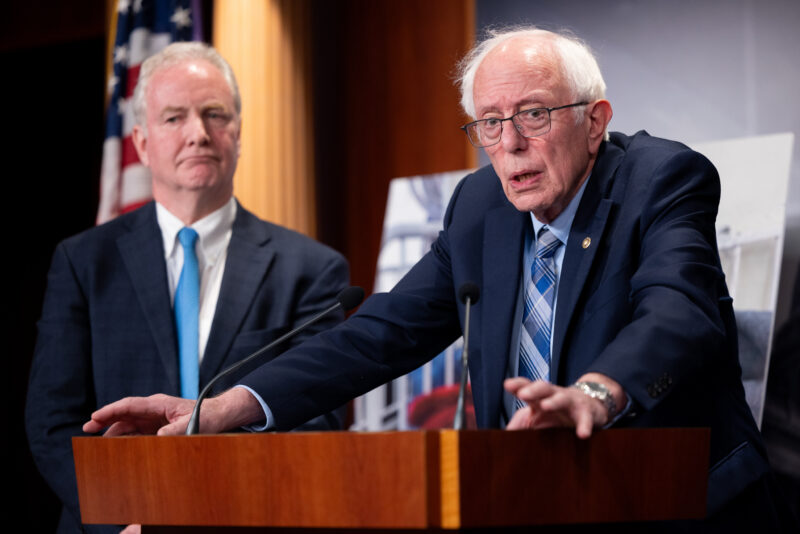Schanzer lays out Israel’s possible response to Hezbollah’s deadly attack
At CUFI conference, the FDD expert critiqued the Biden administration’s preference for restraint

Haley Cohen
Jonathan Schanzer, the senior vice president of research at the Foundation for Defense of Democracies, speaks at the CUFI conference at the National Harbor in Maryland, July 29th, 2024
Jonathan Schanzer, the senior vice president of research at the Foundation for Defense of Democracies, presented on Monday three routes Israel could take in response to Hezbollah’s deadly rocket attack that killed 12 children in the Golan Heights on Saturday.
In his address at the Christians United for Israel conference at the National Harbor in Maryland, Schanzer said Israel had three options: It could maintain the status quo and respond in a limited manner to the attacks, respond with overwhelming force or declare a full-out war against Hezbollah.
On Sunday, Israeli Prime Minister Benjamin Netanyahu and Israeli Defense Minister Yoav Gallant received authorization from the security cabinet to respond to the weekend attack. “Israelis have a challenge, they want answers,” Schanzer said. “Israel stands on the precipice of another war [and] has options as it considers how to respond to Hezbollah,” Schanzer told the crowd, outlining three possibilities.
The first, he said, is to “continue what Israel has been doing, which is actually not a bad option,” he said. This option would not involve initiating attacks, but “maintaining a status quo” and responding to rockets.
The problem with this response, Schanzer told Jewish Insider in an interview after his address, is that “after Saturday’s attack there needs to be a more significant response.”
“So that brings us to option two: Israel responds with overwhelming force and Hezbollah begins to strike back,” he said, warning that this would likely lead to Iranian proxies escalating the war and expanding the area of fighting beyond southern Lebanon and northern Israel.
The downside of fighting in a constrained manor, Schanzer told JI, is that “then you kick the can down the road allowing Hezbollah to arm, replenish and develop new capabilities for another time.”
“Every day that Hezbollah is allowed to survive in Lebanon is another day that the group grows stronger for another round,” he said.
Option three is a full-out war, Schanzer said. He noted that Hezbollah has a “significant arsenal,” making the Iranian-backed terror group as strong as a mid-size European military.
A war with Hezbollah will be significantly more bloody than Israel’s current fight against Hamas, Schanzer said, noting that Israel is “on the precipice of what could be an Israeli victory in the Gaza Strip.”
“Most of the rockets we see fired [from Gaza into] Israel are not accurate … Hezbollah has fixed this problem with the help of Iran,” he said.
On a full-blown war, in which “the escalation ladder begins to climb very rapidly in ways that would appear daunting,” Schanzer said that “Israel probably has the edge but it would take something out of the country after already fighting for nine months.”
Schanzer called option three “the most serious threat that Israel could face short of an Iranian nuclear weapon” and that it would make the last 10 months of war “look like child’s play.” He warned that Iran will react by activating other proxies across the region, such as the Houthis and terror groups in the West Bank.
In his remarks at CUFI, Schanzer was critical of the Biden administration’s actions during the war and called for “American leaders to lead.”
“Israel needs the weapons, the political and diplomatic support,” he said. “The United States needs to let Israel win,” Schanzer continued, expressing that “Israel’s response has been significantly influenced by the Biden administration … [which] told Israel not to start wars that they can’t finish.”
“U.S. fear of a wider conflict may in fact be stoking a wider conflict,” he continued, “that’s the concern that we all have to deal with.”
Schanzer told JI that it’s “almost impossible to know” whether a Trump administration would handle Israel and Iran differently than the Biden administration.
Former President Donald “Trump has never fought a war in the Middle East, he was not a wartime president and he’s never dealt with a state actor or its proxies.”
At the same time, Schanzer recognized that Trump’s unpredictability could be beneficial to Israel. “There was a general sense in the Middle East that Trump was a president to be feared,” he said. “It was not knowable how he would respond to aggression and so for that reason he may have deterred Iranian wars that we are seeing now.”















































